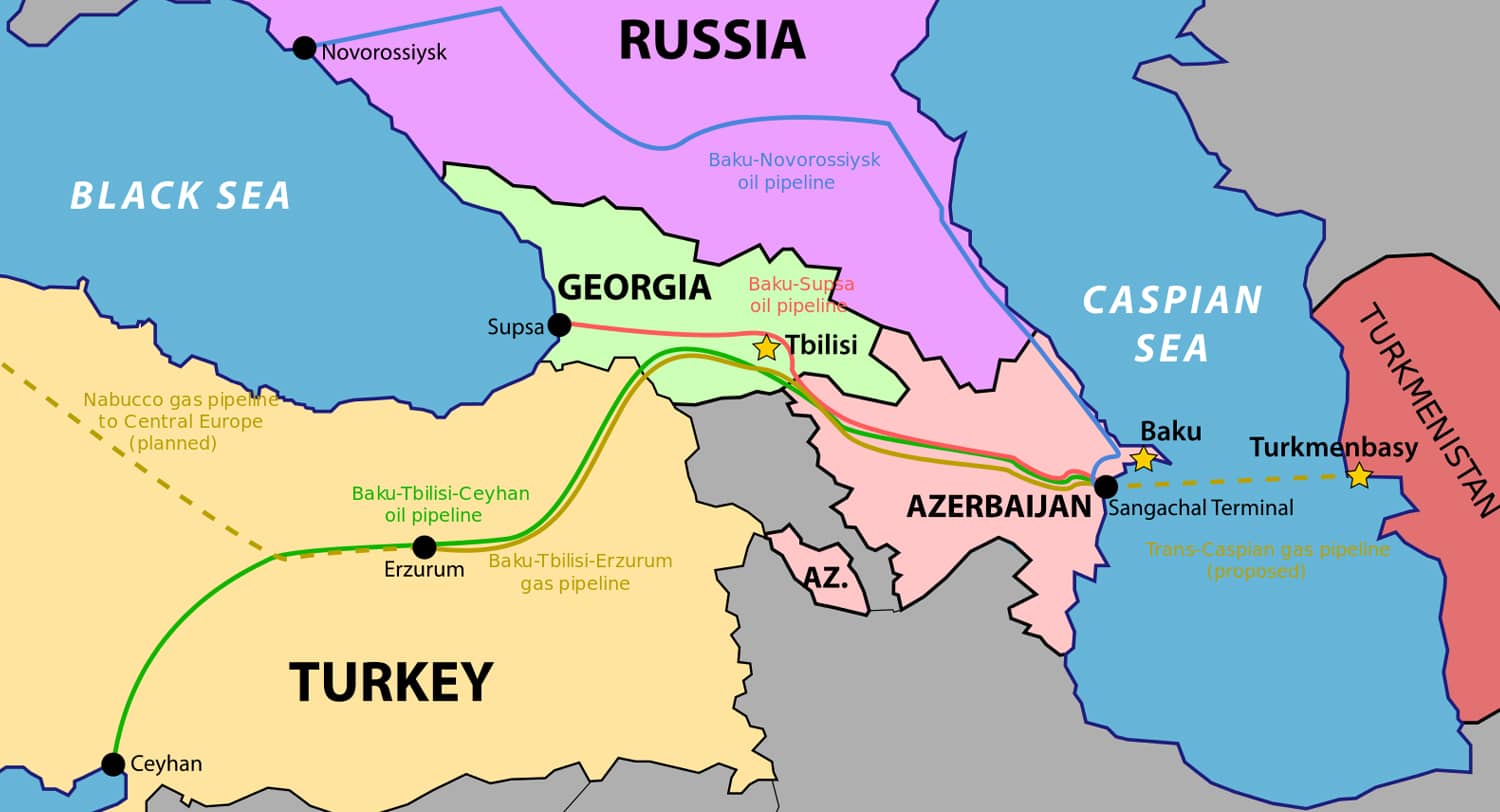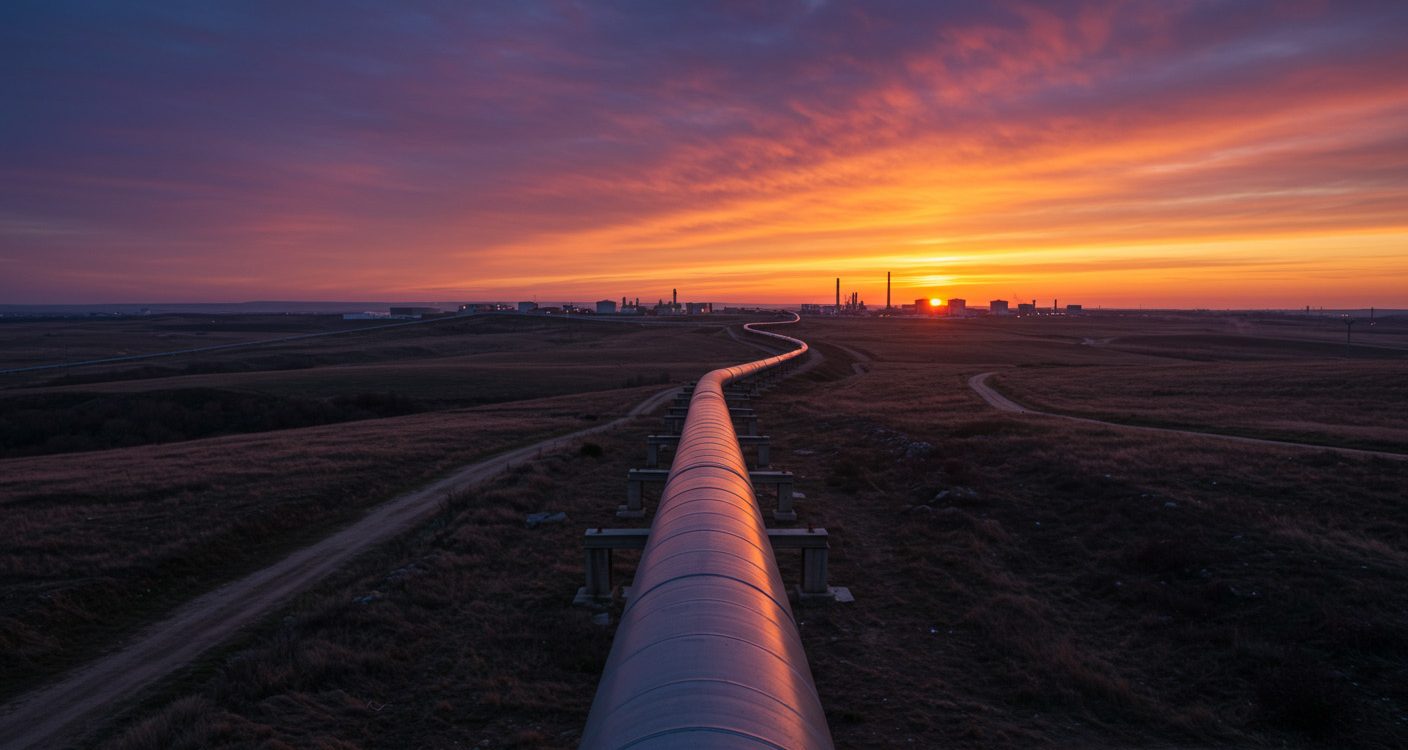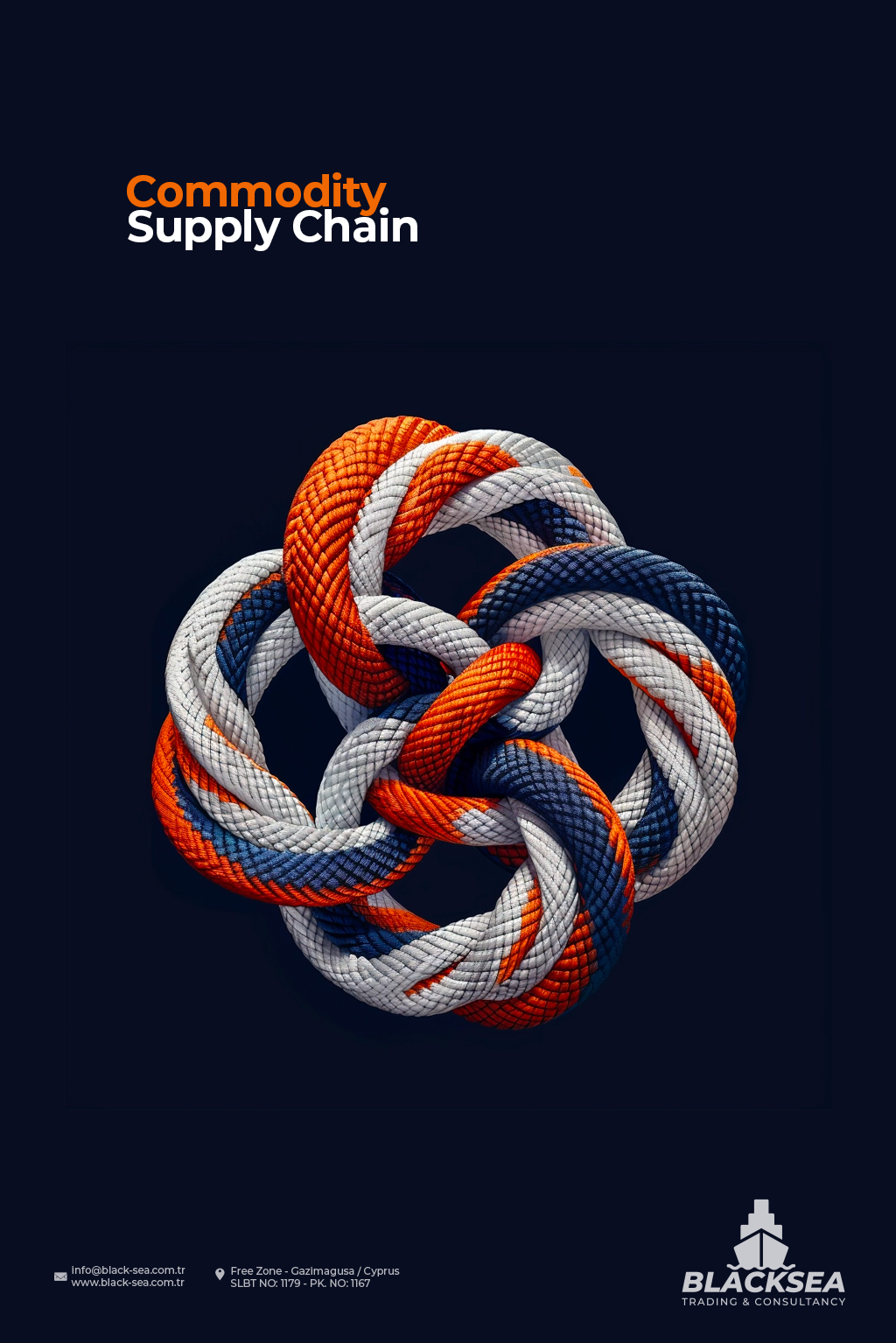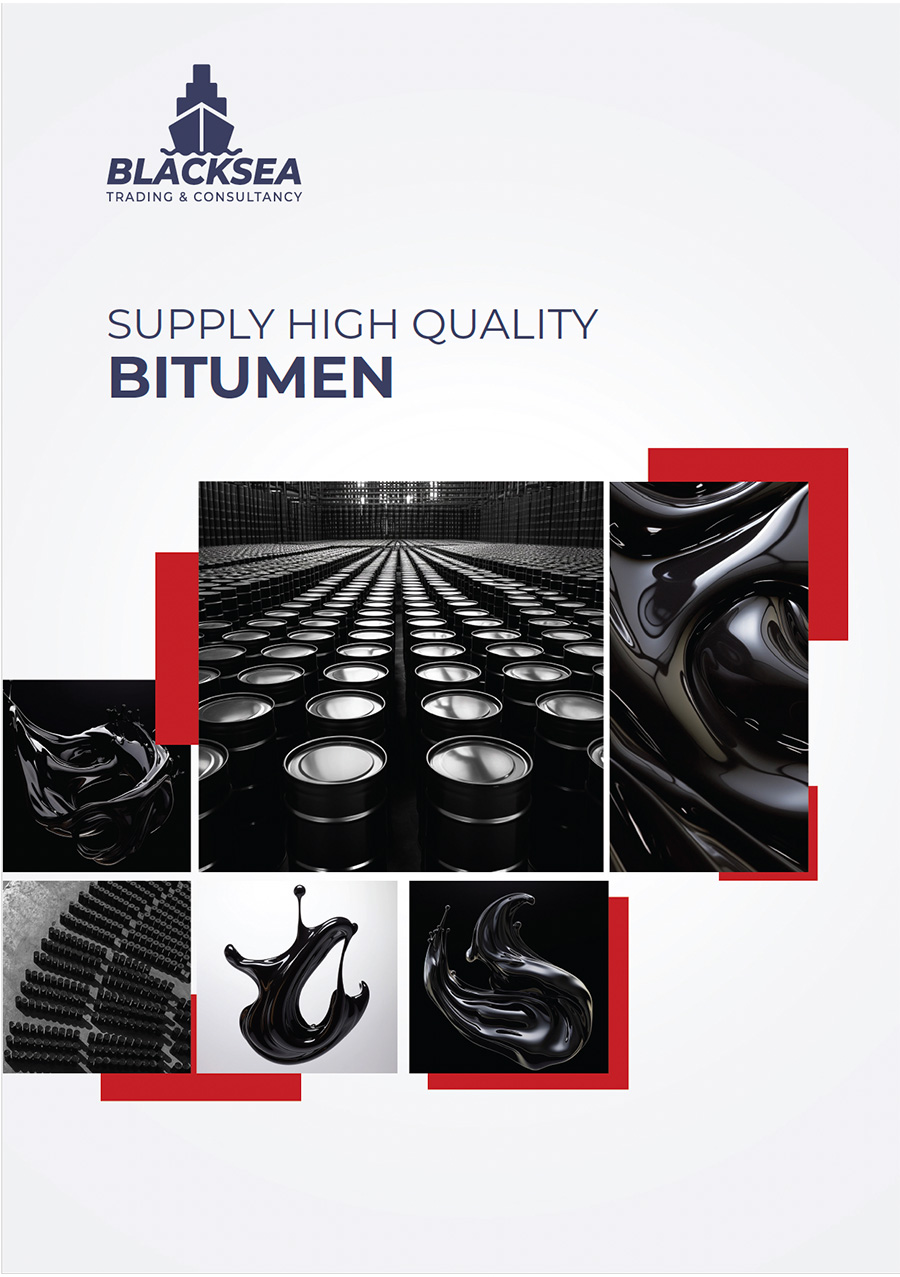
The Baku–Novorossiysk oil pipeline was Azerbaijan’s first international export route for crude oil following its independence from the Soviet Union. Stretching from the Sangachal Terminal near Baku to the Russian Black Sea port of Novorossiysk, the pipeline was modernized and brought into operation in 1996. It enabled Azerbaijan to enter global oil markets at a time when few alternative export corridors existed. While initially strategic, its relevance has declined due to the emergence of more efficient and politically independent routes.
Technical Characteristics
The Baku–Novorossiysk pipeline spans approximately 1,330 kilometers, transporting oil from Azerbaijan to Russia’s Novorossiysk port on the Black Sea. Its operational capacity is around 5 to 6 million tons per year. The pipeline is owned and operated by Transneft, the Russian state pipeline monopoly. Originally based on Soviet-era infrastructure, it was refurbished in the mid-1990s to accommodate rising Azerbaijani crude output, particularly from the Azeri-Chirag-Gunashli fields in the Caspian Sea.
Strategic Role (1990s – Early 2000s)
During the 1990s and early 2000s, this pipeline served as Azerbaijan’s primary route for oil exports, providing access to international markets through Russia. It also served Moscow’s interest in retaining leverage over Caspian energy flows, a significant factor in its post-Soviet foreign policy. Additionally, the proximity to the Novorossiysk port provided logistical advantages for shipping crude to Europe via the Black Sea and the Turkish Straits.
Declining Importance: Key Drivers
The strategic importance of the Baku–Novorossiysk pipeline gradually declined due to several structural limitations. First, Azerbaijan sought to reduce its dependence on Russian-controlled transit routes, especially in light of Moscow’s use of energy as a political tool. Second, the pipeline’s limited capacity made it insufficient for handling growing output from offshore oil fields. Third, transit fees and bureaucratic challenges in Russia raised operational costs and delayed deliveries. Lastly, instability in Russia’s North Caucasus regions, particularly Chechnya and Dagestan, raised security concerns regarding uninterrupted flow.
Turning Point: The Rise of the BTC Pipeline (Post-2006)
The commissioning of the Baku–Tbilisi–Ceyhan (BTC) pipeline in 2006 marked a strategic inflection point. It gave Azerbaijan a direct, Russian-free corridor to the Mediterranean via Georgia and Turkey. As a result, the BTC pipeline quickly became the dominant export route for Azerbaijani crude, relegating Baku–Novorossiysk to a secondary, often backup role.
Why Azerbaijan Shifted to the BTC Pipeline?
Reducing Dependence on Russia
One of Azerbaijan’s foremost strategic priorities was to assert energy sovereignty in the post-Soviet era. Continued reliance on a Russian-operated export route left Baku vulnerable to potential coercion or price manipulation. By investing in the BTC pipeline—a route that bypasses Russia entirely—Azerbaijan significantly reduced its geopolitical dependence on Moscow, gaining greater control over its energy destiny.
Western Political and Financial Support
The BTC pipeline was not just a logistical solution—it was a political project backed by the United States, the European Union, and Turkey. This Western alignment ensured strong diplomatic backing, access to international financing, and long-term political insurance. It also positioned Azerbaijan as a reliable partner in the Euro-Atlantic energy corridor, boosting its global profile and investment attractiveness.
Economic Superiority
From an economic standpoint, the BTC pipeline offers significantly higher throughput capacity—up to 50 million tons annually—compared to the 5–6 million tons of Baku–Novorossiysk. Additionally, transit fees and operating costs are lower and more predictable. The BTC route also eliminates costly transits through the Turkish Straits by delivering crude directly to the Mediterranean port of Ceyhan, reducing both logistical bottlenecks and environmental risks.
Enhanced Security and Environmental Assurance
Routing oil through the Black Sea involves navigating crowded and narrow maritime channels, particularly the Bosporus and Dardanelles, increasing the risk of environmental hazards and shipping delays. In contrast, the BTC pipeline delivers crude directly to the Mediterranean, bypassing maritime chokepoints and offering a more secure and environmentally sound alternative.
Strategic Long-Term Vision
The shift toward the BTC pipeline is reflective of Azerbaijan’s long-term strategic planning. Beyond economics, it represents a broader geopolitical pivot toward integration with Western institutions and energy markets. Since 2006, the BTC route has carried the bulk of Azerbaijan’s oil exports. Meanwhile, the Baku–Novorossiysk pipeline now serves mainly as a reserve or niche route, activated during periods of maintenance or capacity constraints on other lines.
Strategy, Sovereignty, and the Future
In summary, Azerbaijan’s transition from the Baku–Novorossiysk pipeline to the BTC corridor was not a matter of technical preference, but of national strategy and geopolitical rebalancing. While the Baku–Novorossiysk line retains historical and limited operational relevance, it is the BTC pipeline that now serves as the spine of Azerbaijan’s energy export architecture, offering independence, efficiency, and alignment with global markets.

Why Choose BLACKSEA TRADING COMPANY?
Quality Assurance: We ensure the highest quality standards for all our products, delivering reliability and excellence.
Competitive Pricing: Our commitment to fair and reasonable pricing ensures you get the best value for your investment.
Reliable Supply: Count on us for consistent and timely deliveries, maintaining seamless operations for your business.
Exceptional Service: Our team is dedicated to providing outstanding service, addressing your inquiries promptly and effectively.
Take this opportunity to optimize your sourcing strategy and benefit from our premium offerings. Please reach out to us at info@black-sea.com.tr to discuss your specific requirements or to place an order. We’re here to assist you in every step of the process.
We look forward to continuing our successful collaboration.







